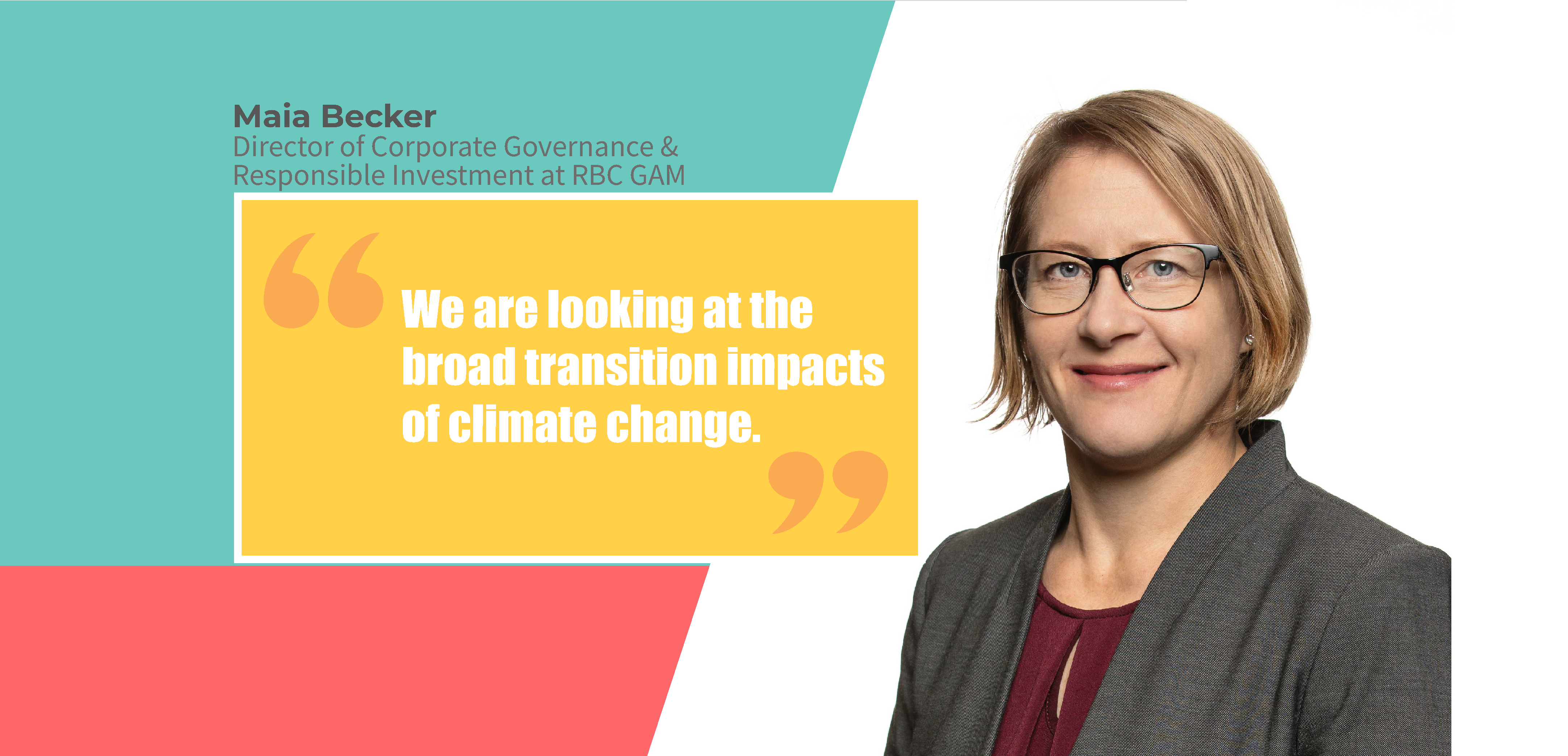- Royal Bank of Canada Global Asset Management is working on future proofing its portfolio of over $300 billion to protect its assets from the impact of climate change.
- IPCC, a United Nations body that advises the governments on climate science, has warned that a rise in global temperatures may result in more extreme weather patterns that could disrupt commercial activities worldwide.
- Asset managers are stepping up their efforts to monitor climate risks as investors are growing more concerned about how climate change will impact their money.
Future proofing any portfolio, especially one as large as the over-$300-billion one the asset management arm of the Royal Bank of Canada handles, is never easy. However, protecting its clients from the impact of a warming planet has required some structural changes to how it evaluates its investments.
The bank is intensifying its evaluation of its war chest through the lens of climate change, says Maia Becker, the director of corporate governance and responsible investment at RBC GAM, which provides financial services to high-net-worth investors and institutions around the world.
“We are looking at the broad transition impacts of climate change. So how does the transition to a low-carbon economy potentially positively or negatively impact a company?,” Becker told Karma. “We look at legislation. We look at shifts in technology. I think it’s going to be a much more comprehensive view of how a company and our portfolio and the firm gets exposed to climate risks and opportunities.”
The bank released a report about its more rigorous climate change review in April of this year.
The RBC GAM guide draws on the underlying data from the United Nations Intergovernmental Panel on Climate Change, which advises governments on climate science. The IPCC has modeled different scenarios for a world where the continued use of fossil fuels and carbon emissions leads to rising global temperatures and more extreme patterns such as floods or droughts. The IPCC has said that an increase in global temperatures above 1.5°C will result in catastrophic physical impacts that may require more investment in climate adaptation.
Becker’s team will oversee the work of looking at climate change risks across all industries where RBC GAM is invested to assess the long-term impact of different climate scenarios. The information will then be provided to the investment officers so they can make final decisions about the portfolio, which includes tailor-made investment strategies and multiple vehicles, including mutual and hedge funds.
The bank looks at granular details such as real estate investments in areas that may be more prone to flooding and wildfires or other weather events that will damage assets and increase insurance premiums.
In the energy sector, carbon pricing — a tax levied by governments in different countries such as Canada or Sweden on the production and consumption of fossil fuels — may make certain types of power more costly, says Becker.
“Power generation will largely be impacted by that and how that impacts their margins will depend on whether they can pass on those costs to their customers,” says Becker.
The report says greenhouse gas emitting sectors may face more litigation and liabilities related to climate change, while other energy assets located offshore may be affected by extreme weather patterns that disrupt business operations — all of this could negatively affect the value of an investor’s portfolio. The report also outlines opportunities such as shifting investments to fund the development of energy storage and renewables.
Becker’s team will be using methodologies such as those issued by the Financial Stability Board, a body set up by the G20 to advise on trends in the global financial system. Its task force prepared a guide on climate-related financial disclosures supported by organizations worldwide.
Asset managers are increasingly stepping up their ESG efforts, as investors are growing more concerned about how climate change will impact their money. RBC GAM joined Climate Action 100+, an activist shareholder investors group that pushes companies to transition to a low-carbon economy. The group is supported by 450 investors with about $40 trillion in assets under management.
More importantly, U.S. asset managers are also watching signs from the Securities and Exchange Commission that authorities are taking a closer look at how the industry measures ESG factors. The commission sent out a query to several asset managers asking them to disclose their standards and metrics in late 2019, according to sources familiar with the matter.
Becker says no industry will remain untouched as consumer habits are already changing in response to concerns about global warming. People are working from home, traveling less or eating less meat.
“We see a [consumer] shift away from some of the more carbon-intensive industries,” says Becker.






















